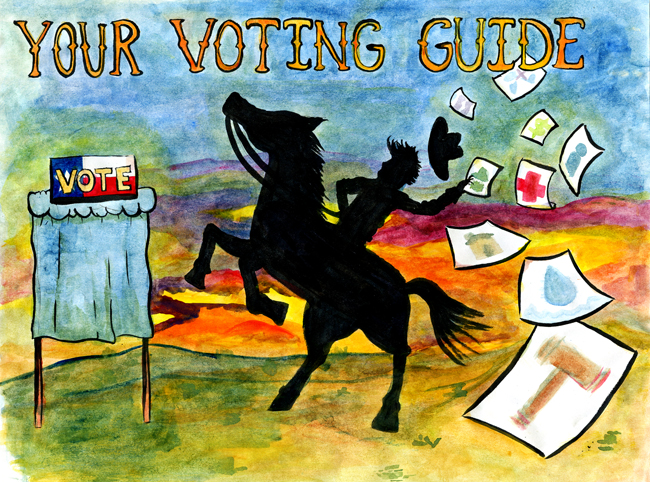Proposition 1 would provide spouses of armed services members who died in action a tax exemption on all or some part of the market value of the late spouse’s residence, according to the secretary of state’s website. Spouses are eligible for this tax exemption if they have not remarried. This exemption would have to be authorized by the Texas Legislature.
Proposition 2 would repeal the constitutional provision requiring the creation of a State Medical Education Board and a State Medical Education Fund because no loans have been made from the fund since 1988, and the board has no appointees or funding. This is intended to simplify the Texas Constitution.
Proposition 3 would allow political subdivisions, such as counties, cities and school districts, to extend the amount of time aircraft parts can remain in Texas without being subject to taxation based on their value. Currently, merchandise and goods, including aircraft parts, may remain in Texas for up to 175 days before being taxed, but if this amendment is passed, it would allow the merchandise to remain in the state tax-free for up to 730 days.
Proposition 4 would allow tax exemptions on the residence of a partially disabled veteran, or that person’s spouse, as long as the home was donated to the veteran by a charity, according to the secretary of state’s website.
“It’s designed to give benefits to a very specific class of veterans, and obviously the advantage of it is you’re providing aid to deserving citizens,” UT accounting professor Michael Granof said. “The disadvantage is that you start singling out certain groups for specific treatment, then you’re undermining the universality of taxes because certain people are getting benefits while others aren’t.”
Proposition 5 would authorize loans allowing a conversion of home equity into cash, known as reverse mortgage loans, for purchase of homestead property — a house and a lot, according to the secretary of state’s website. This type of mortgage loan is available for people older than 62, and Texas is the only state where reverse mortgage loans for home purchases are not available for senior citizens, according to a report by the Texas House of Representatives.
Proposition 6 would create a new fund for projects that would expand water supplies to keep up with the state’s economic and population growth, law school research fellow Jeremy Brown said.
Two billion dollars from the Economic Stabilization Fund, otherwise known as the Rainy Day Fund, would create the State Water Implementation Fund of Texas. In 2012, the Texas Water Development Board issued a plan stating that if Texas didn’t develop new water supplies, it would fail to meet the projected water demand, harming the state’s economy, Brown said. The plan recommends conservation, reservoirs, interbasin transfers of surface water and other water management policies.
Brown said the amendment would create new jobs if it passes and works the way it is intended to.
“The exact jobs would depend on the nature of the expenditures,” Brown said. “The construction of a new reservoir, for instance, would create different sorts of jobs than the installation and maintenance of water-efficient technologies.”
Brown said if the amendment passes, the water development board will create regulations to implement the 2012 plan recommendations, and then work with local governments to begin the projects. Brown said the local governments will provide funding for the projects.
Proposition 7 would allow a home-rule municipality, such as Austin, to fill a governing official’s vacancy if the unexpired term is one year or less, according to the secretary of state’s website. Currently, a home-rule municipality must conduct a special election to find someone to fill the vacant seat until the term expired, and then it must conduct a general election for a new term. This amendment would allow municipal officials to make appointments to fill vacancies.
Proposition 8 would repeal a constitutional provision that caps the property tax rate of a Hidalgo County hospital district at 10 cents per $100 valuation. This proposition would amend a provision of the Texas Constitution that has not been amended since its adoption in 1959. This county will house the UT System’s upcoming regional medical school, in Edinburg, as part of the merger between UT-Pan American and UT-Brownsville.
Proposition 9 would expand the State Commission on Judicial Conduct’s ability to warn the public about judges who have misbehaved in some way or have been accused of activity that does not fit their position as a judge, government professor Raul Madrid said. Currently, once a judge has been through formal proceedings, he or she is eligible for public censure or a recommendation of removal from office. If the proposition passes, judges will face increased punishments, including the requirement they receive additional training or education, among other sanctions.












